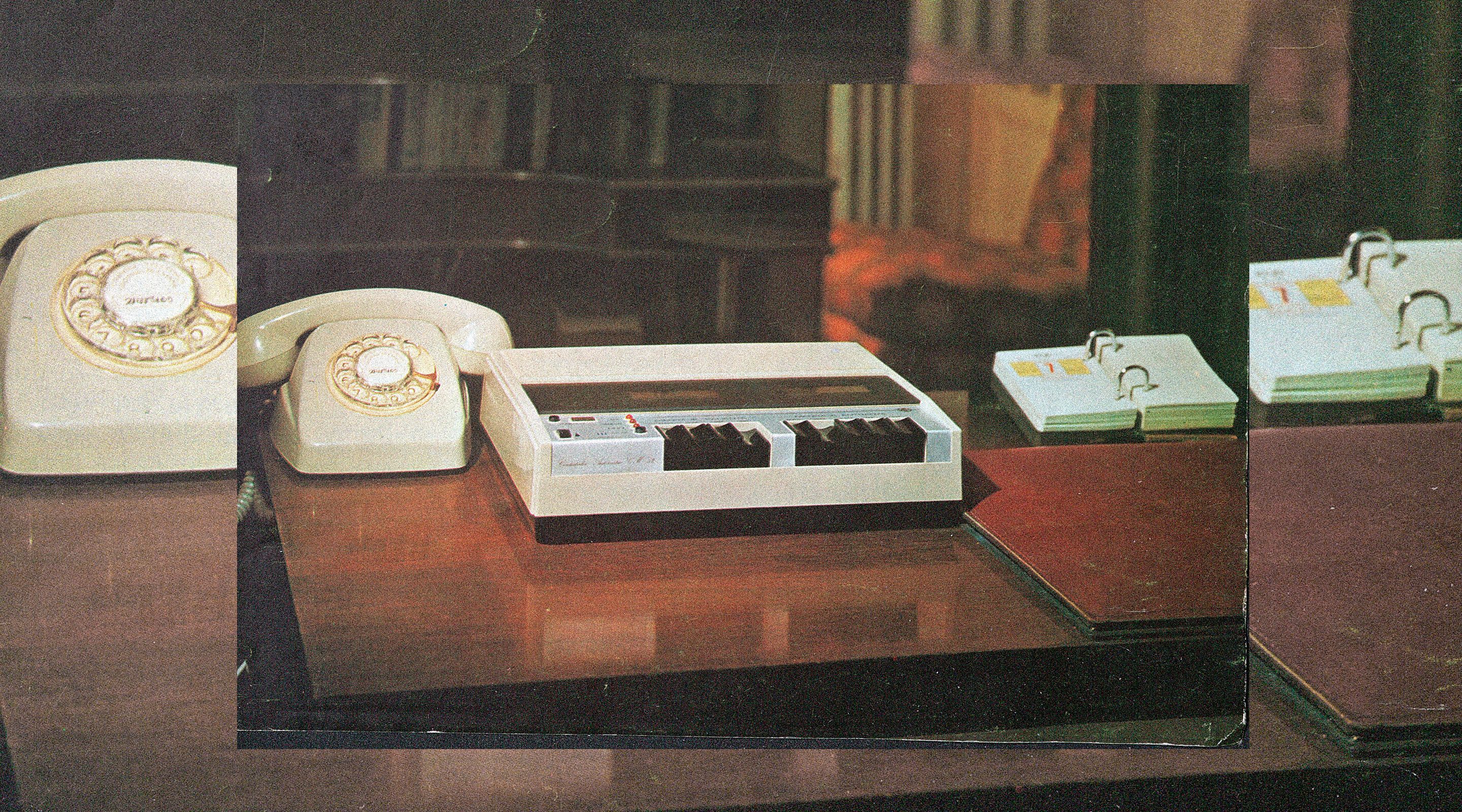
1975
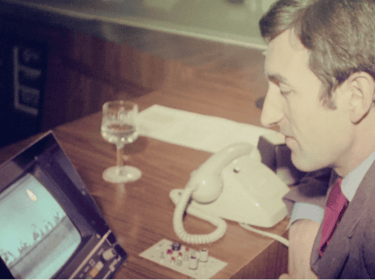
Almost 50 years before the pandemic forced us all to meet via Teams, Telefónica began to explore the possibilities of video conferencing. The answering machine was evolving too, and a new submarine cable was weaving new networks underwater.
Talking on the phone "seeing" each other: video conferencing has arrived
01
Every year, technology makes it possible to go one step further. "To go the extra mile", we would say. We could talk at a distance, we could send written messages to each other. What was missing was the conquest of the moving image, and that came in 1975. Videoconferencing, primitive, but videoconferencing at last, with image and sound in real time, was beginning to become a reality in those years when so many things were changing in Spain. In 1975, Telefónica set up the first system between Madrid and Barcelona for holding video telephone conferences and two phone booths were installed in Madrid and Barcelona to hold this type of call. Many years later, this possibility would pave the way for remote meetings that have saved us so much travel, journeys and time, especially at times like the pandemic.
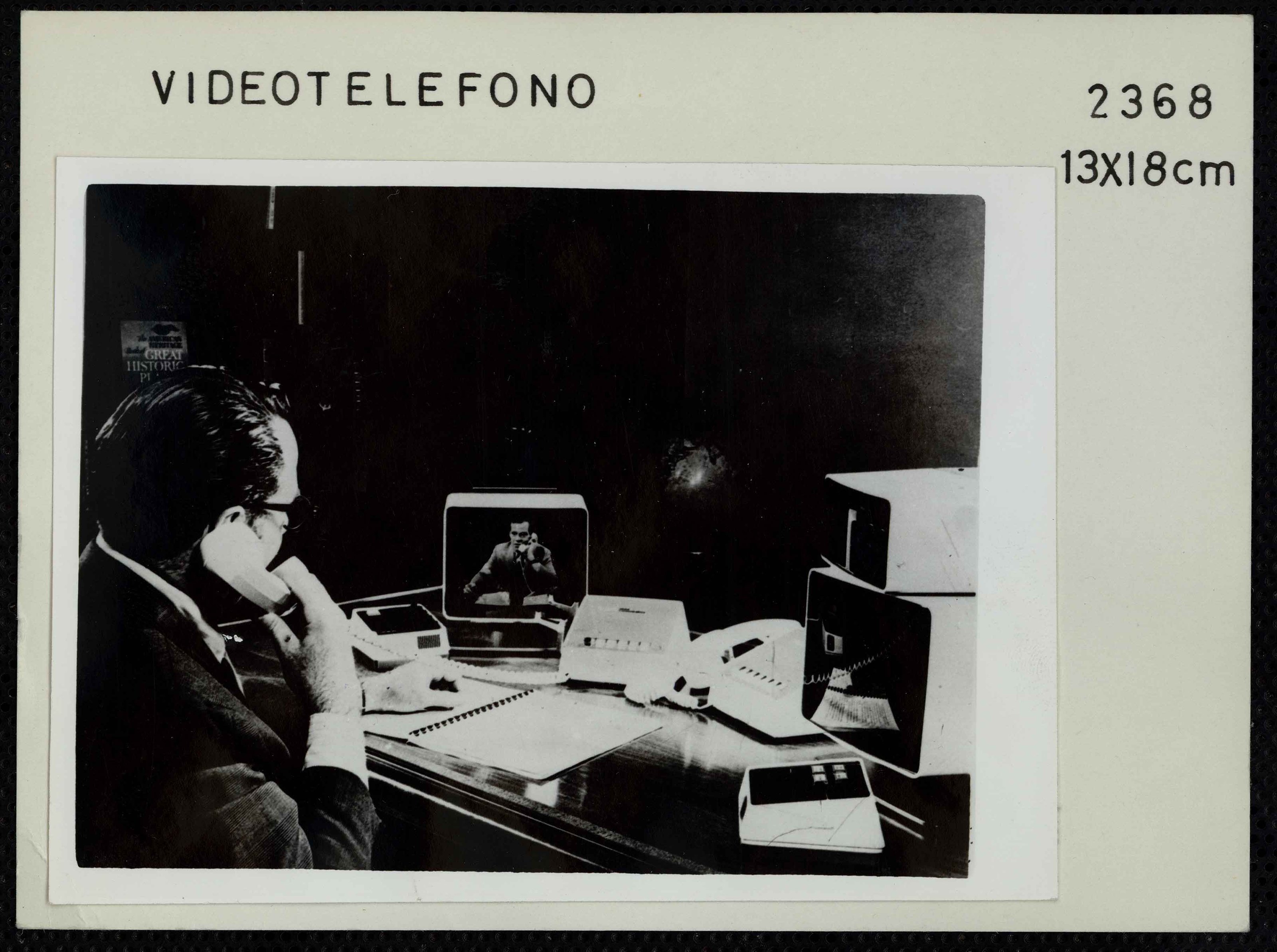
Developments in devices
01
Answering machines were already known a few years ago, but now comes the cassette answering machine, ready to record messages, but also to broadcast them. They are marketed with the multi-frequency keypad telephone and advertised - with posters on the Gran Via façade - as the solution for a "24-hour informed and answered" telephone. Because, as the user manual explained, it was now possible to "be in two places at once".
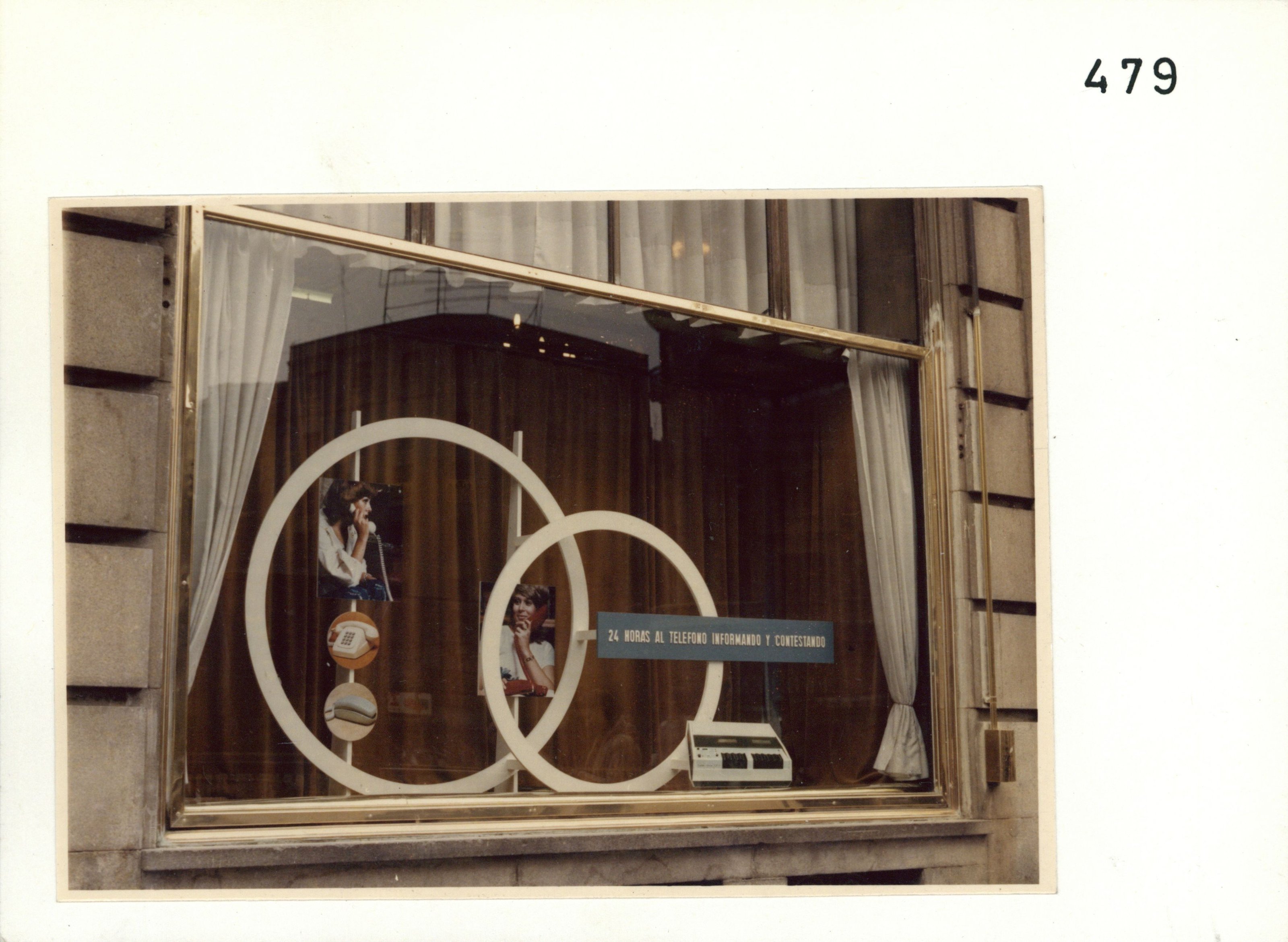
A dedicated centre for maritime service... and more and more cable under the sea
02
For Telefónica, it was important to ensure communications with ships at sea - with each other and with ports - to preserve crew safety and route efficiency. In 1975 a new shortwave radio centre was inaugurated in Griñón (Madrid) and two new coastal stations in Málaga and Alicante to cover the whole coast. Also that year, the COO of Telefónica, Santiago Foncillas, inaugurated the new Spain - Great Britain submarine cable with a call and an event with all the necessary pomp and circumstance.
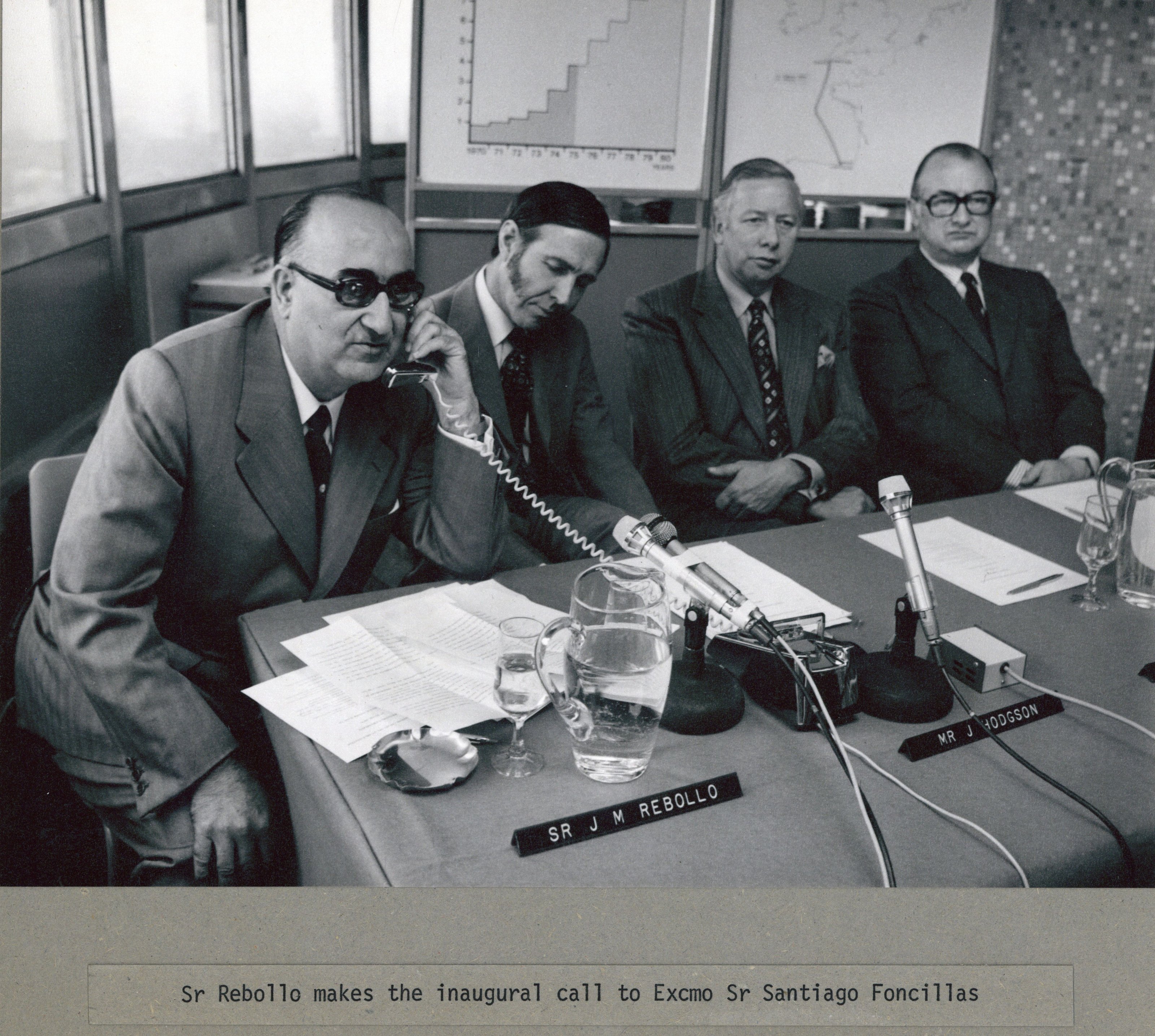
Video conferencing
You must accept all cookies to see this content
Do you have doubts about what happened?
Ask Aura